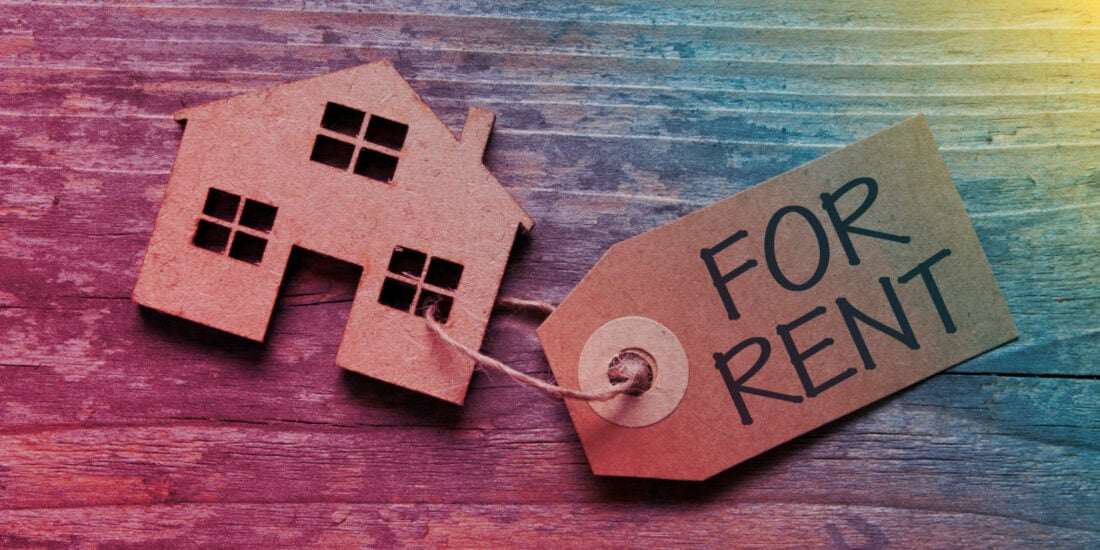
COVID-19: Uncertainty in the Air for Contractual Obligations
The Coronavirus Disease 2019 (COVID-19), categorised by the World Health Organization as a pandemic on 11 March 2020, has now spread to 215 countries, areas and territories across the world. The pandemic has resulted in an unparalleled impact on international trade and commerce, and the global economy has since been plunged into a state of deep-freeze.
This article considers the measures implemented to combat the spread of COVID-19, what this means for existing contractual obligations of affected parties across key sectors and recent legislation introduced in Singapore aimed at navigating those affected through these uncertain times.
At present, there are over 3.9 million confirmed cases of COVID-19 around the world.1Statistics from the World Health Organization (as of 11 May 2020): https://www.who.int/emergencies/diseases/novel-coronavirus-2019 To prevent any further spread of the virus as the world continues racing towards a vaccine, governments have put in place a series of draconian public health measures. Whilst such measures are undoubtedly essential in the face of the developing pandemic, they have resulted in a severe disruption of the global economy currently being felt across key sectors on both supply and demand sides.
On 7 April 2020, Singapore’s government introduced a series of “circuit-breaker”2https://www.moh.gov.sg/news-highlights/details/circuit-breaker-to-minimise-further-spread-of-covid-19 safe distancing measures focused on the closure of non-essential services, workplaces, schools and most other venues. This added to its already extensive arsenal of measures comprising of travel restrictions, quarantine/stay-home orders, event suspensions and social distancing regulations. Midway through the circuit-breaker, the government announced the further tightening of measures and its extension until 1 June 2020 as a response to the rapid spread of COVID-19 within foreign worker clusters and increasing figures of unlinked cases within the community.3https://www.moh.gov.sg/news-highlights/details/strong-national-push-to-stem-spread-of-covid-19
With no clear signs of the virus slowing down in Singapore, significant easing of public health measures is unlikely at least in this quarter. Affected parties must now decide between riding out the crisis and cutting losses, and this has resulted in a high level of uncertainty built up across the following key sectors.
Tourism
As countries continue shutting their borders and restricting non-essential travel in a joint effort to reduce COVID-19 imports, commercial flights have come to almost a complete halt. The tourism sector that survives on human interaction has been dealt with the heaviest blow, with millions of jobs now being lost and even more at risk. The United Nations World Tourism Organisation estimates a 20 per cent to 30 per cent decline in international visitor arrivals in 2020, which translates to a potential USD300b to USD450b loss in international visitor spending.4https://webunwto.s3.eu-west-1.amazonaws.com/s3fs-public/2020-03/24-03Coronavirus.pdf
In March 2020, Singapore experienced an 84.7 per cent year-on-year decline in international visitor arrivals.5Statistics from the Singapore Tourism Analytics Network (as of 11 May 2020): https://stan.stb.gov.sg/public/sense/app/254dd6c2-eaf7-46c4-bf7a-39b5df6ff847/sheet/3101ecdd-af88-4d5d-be49-6c7f90277948/state/analysis The decline in international visitor spending that followed has resulted in rapid ripple effects for the businesses that constitute its tourism supply chain. Established business arrangements between travel agencies, international carriers, hotels, restaurants and other tourist venues are now collapsing as a result and the businesses involved currently face an impossible task of meeting their respective contractual obligations.
Events
To curb community spreading of COVID-19, countries have also started imposing bans on most events. This comes as another blow to the events sector, that has yet to fully come to terms with the impact suffered from an overall aversion to human contact following the discovery of the virus.
In Singapore, events that have been either postponed or cancelled involuntarily include religious gatherings, conferences, exhibitions, live events and weddings. For both event operators and consumers, there is much uncertainty as regards the status of deposits placed for event-related reservations.
Food & Beverage (F&B); Retail
The impact of the COVID-19 public health measures and active efforts to avoid human contact is also felt across businesses in the F&B and retail sectors, that had already been struggling to cope with the severe reduction in human traffic at key areas such as business and shopping districts. With the circuit-breaker in place and the further tightening of its measures, F&B and retail outlets that are now unable to operate effectively or at all have additional problems trying to make ends meet.
Rent is a major operating cost for businesses in both the F&B and retail spaces, and those unable to make payment on time as a result of COVID-19 spillover effects will inevitably have concerns about eviction. For many F&B and retail outlets, rent is comprised of a fixed base rent and a variable component based on monthly gross turnover. Despite pressures from affected businesses to either lower base rent or peg rent to monthly gross turnover, landlords have yet to take substantive action and the survival of such businesses continues to be uncertain.
Given that there is no clear indication of when COVID-19 will clear up, affected businesses that are no longer sustainable may instead be seeking the alternative option of an early exit from their leases. However, whether liability for an early exit can be avoided remains a question.
Manufacturing
Supply chain networks have, over recent decades, become significantly more streamlined as a result of globalization. Whilst the offshoring and outsourcing processes involved have resulted in an overall increase in efficiency, this comes at the cost of higher supply chain disruption risks since businesses are left increasingly exposed to external threats and fragmented production. The manufacturing sector, that is heavily dependent on raw materials and sub-assemblies, continues to suffer as a result of cross-border supply chain links between countries affected by COVID-19.
At COVID-19’s initial phase, close to half of China’s population was quarantined and this resulted in the complete shutdown of the world’s second-largest economy. Thereafter, the spread of the virus in the region saw another round of supply chain disruptions emerging from South Korea and Japan. At present, disruptions are being experienced across the USA and in Europe where the virus continues to spread at a frightening pace.
As a result of these supply shocks, Singaporean manufacturers have been unable to maintain production and fulfill orders. This decline in output has been made worse by blocked labour flows, given that most of such manufacturers employ a significant number of Chinese nationals now unable to enter Singapore due to travel restrictions. Following the circuit-breaker and partial shutdown of its own manufacturing sector, output is expected to worsen and there is likely to be a sharp increase in unfulfilled orders.
Construction
For construction companies, the ability to discharge the key contractual obligation of meeting project deadlines has become the immediate concern. Travel restrictions and quarantine/stay-home orders imposed on foreign workers have resulted in severe labour shortages for such companies, that must simultaneously deal with delays in shipments of supplies.
Workers involved in construction projects are typically required to complete safety courses in the project country and often, are trained for specific tasks. Similarly, supplies for construction projects are often developed to fit project-specific structures. It follows that for both labour and supplies, finding an alternative source is not a straightforward task and would require time – something that construction companies simply do not have given the enormous construction sector costs that are continuing to accumulate.
Singaporean construction companies, that tap significantly on China’s market for foreign labour and Malaysia’s market for supplies, have more than just labour and supply shortages to deal with. As of 7 April 2020, such companies have also had to deal with the complete suspension of ongoing projects following the circuit-breaker. As a result of the developing situation, many of those affected have started issuing delay notices and submitting extension of time claims to developers.
The COVID-19 (Temporary Measures) Act 2020
To keep at pace with the rapidly evolving public health measures, the COVID-19 (Temporary Measures) Act (the Act) was passed on 7 April 2020 following a Certificate of Urgency signed by the President allowing all 3 readings of its Bill to be taken in a single Parliamentary sitting. The Act will apply retrospectively to contractual obligations to be performed on or after 1 February 2020,6COVID-19 (Temporary Measures) Act 2020 (the Act), Section 4(1). for contracts entered into or renewed before 25 March 2020.7Id., Section 5(1). Besides offering temporary relief to those affected by COVID-19, the Act facilitates the co-operation that is required more than ever during this crisis.
The key features of the Act are set out below:
- Part 2 of the Act offers affected parties unable to perform contractual obligations with temporary protection from legal action, for a 6-month period from 20 April 20208Id., Section 3; See also COVID-19 (Temporary Measures) (Prescribed Period) Order 2020. (the Prescribed Period) that may be extended by the Minister;
- Part 3 of the Act provides for temporary increases in the statutory limits for winding up and bankruptcy proceedings during the Prescribed Period; and
- Part 6 of the Act compels landlords to transfer the full amount of non-residential property tax rebates received to their tenants.
Part 2: Temporary Protection from Legal Action
The temporary protection offered by the Act targets the following categories of contracts (the Scheduled Contracts):9Schedule to the Act.
- Specific loan facilities granted by banks and finance companies to small and medium enterprises;
- Performance bonds and equivalent instruments pursuant to construction contracts and supply contracts;
- Hire-purchase agreements for commercial vehicles or certain fixed assets located in Singapore used for business purposes;
- Event contracts;
- Tourism-related contracts;
- Construction contracts and supply contracts; and
- Non-residential leases and licenses.
Where non-performance in respect of any of the Scheduled Contracts is caused materially by COVID-19, the Act may grant defaulting parties temporary protection from:10Supra, n 6, Sections 5(3) and 6(2).
- Court proceedings;
- Insolvency proceedings;
- Enforcement of securities over immovable property and movable property used for the purposes of business or trade;
- Calls on performance bonds issued pursuant to construction contracts and supply contracts; and
- Termination of non-residential leases and licenses.
In order to obtain relief under this Part of the Act, the party seeking relief must first serve a notification of relief on all other parties.11Id., Section 9(1); See also COVID-19 (Temporary Measures) (Temporary Relief for Inability to Perform Contracts) Regulations 2020 (the Regulations), Regulation 9. Thereafter, any counterparty seeking to contest the application for temporary relief must file and serve on all other parties an application to appoint an assessor who will determine whether relief should be granted.12Id., Sections 9(2) and 12; See also the Regulations, Regulation 14.
For certain categories of the Scheduled Contracts, the Act also offers additional relief during the Prescribed Period. In the case of construction or supply contracts, a party unable to perform its contractual obligations may not be liable for liquidated damages if the non-performance was caused to a material extent by COVID-19.13Id., Section 6(5). The same test applies in respect of event and tourism-related contracts, where additional protection against forfeiture of deposits and cancellation fees may be granted to those who are compelled to postpone or cancel events.14Id., Section 7.
It must be pointed out that whilst the Act effectively suspends contractual obligations during the Prescribed Period, it does not absolve parties to existing Scheduled Contracts from performance altogether. For affected parties that will be able to perform their contractual obligations following the lifting of COVID-19 public health measures, things are likely to be more straightforward with time being the only concern. For affected parties that have payment obligations suspended, debts will have to be paid at a later stage in accumulated amounts with any interest and/or late payment fees incurred. Making timely payment may therefore continue to be an issue, whether or not the virus remains present. Cash-flow issues will be present as long as the virus continues to spread, and granting repeated cycles of contract suspensions may not be a viable solution. Even where the virus has slowed down, affected parties may still suffer from insufficient cash-flow as they wait on the economy to recover.
Separately, the scope of an inability to perform contractual obligations “caused materially by COVID-19” remains unclear and this could open the floodgates for potential abuses of the temporary relief that the Act offers. For the assessors to be appointed, sifting through the high volume of cases whilst ensuring fair outcomes may therefore be the first challenge that lies ahead considering the urgency of the relief required.
Part 3: Temporary Increases in Statutory Limits for Winding Up and Bankruptcy Proceedings
For parties to existing non-Scheduled Contracts, liability for damages will continue to be incurred in the event of non-performance even if the non-performance is caused materially by COVID-19. At present, the only form of relief offered by the Act to such parties takes the form of temporary increases in the debt thresholds and time limits for winding up and bankruptcy proceedings during the Prescribed Period. The debt threshold for businesses has been increased from S$10,000.00 to S$100,000.00,15Id., Sections 22(1)(a) and 24(1)(a). whilst that for individuals has been increased from S$15,000.00 to S$60,000.00.16Id., Section 20(1)(e). For both businesses and individuals, the period to respond to statutory demands has also been extended from 21 days to six months.17Id., Sections 20(1)(e), 22(1)(b) and 24(1)(b). Whilst such measures may buy affected parties some time by offering them with temporary protection from winding up or bankruptcy, such parties continue to be left without any targeted solutions to cope with the long-term effects of COVID-19.
Part 6: Mandatory Transfer of Non-residential Property Tax Rebates
As a response to increasing pressures from commercial tenants, the Act also compels landlords to transfer the full amount of non-residential property tax rebates received to their tenants on a timely basis and with no conditions attached.18Id., Section 29. Whilst the Resilience Budget in March has introduced expanded property tax rebates of up to 100 per cent for qualifying commercial properties,19https://www.iras.gov.sg/irashome/uploadedFiles/IRASHome/e-Tax_Guides/Property%20Tax%20Rebate%20for%20Non-Residential%20Properties%20in%202020.pdf landlords have been slow to transfer these benefits to their tenants that are struggling to stay in business. By obligating landlords to act, the Act will temporarily ease the financial pressure on commercial tenants in key sectors affected by the COVID-19 fallout. However, such tenants continue to be concerned about their long-term survival given the limited amount of the rebates which may be exhausted in a span of months. Further, the Act does not cover situations involving contracts between tenants and sub-tenants. Whilst the Act compels landlords to transfer rebates to their tenants in full, it imposes no such obligation on tenants vis-à-vis their sub-tenants.
Long-term Considerations
Despite the breathing space that the Act offers, temporary measures may be rendered obsolete if COVID-19 persists as a long-term problem. Parties to existing contracts must therefore be cognizant of their respective legal positions, so that they may develop lasting solutions to mitigate the continued effects of the evolving crisis.
For those unable to perform contractual obligations, a starting point would be to scan the relevant contract for a force majeure clause that excuses contracting parties from performance upon the occurrence of specified extraordinary events beyond their reasonable control. The excuse from performance may be temporary or permanent, and force majeure clauses may provide for a variety of remedies vis-à-vis different events including a temporary suspension of obligations, extensions of time and/or the right to termination. Events deemed to be beyond the control of the contracting parties and that are typically listed in force majeure clauses include acts of God, wars, and pandemics. Where a contract consists of a force majeure clause and a party seeks to rely on it, such party must first have taken all reasonable steps to avoid its operation or to mitigate its consequences.20RDC Concrete Pte Ltd v Sato Kogyo (S) Pte Ltd & Another Appeal (2007) 4 SLR(R) 413 at (64).
Whether COVID-19 comes within the scope of an existing force majeure clause would depend on its precise construction,21Id., at (54). and this would be relatively straightforward if the clause expressly refers to a “pandemic” and its related effects. Otherwise, a closer reading of the clause would be required in order to determine if the virus and/or its effects are covered by any other term (e.g. “national emergency”) or catch-all provision (e.g. “any other event beyond parties’ reasonable control”). In both instances, the burden is on the party invoking the clause to prove that it is unable to perform its contractual obligations by reason of the force majeure event.
Where a contract does not include a force majeure clause or where COVID-19 does not fall within the scope of an existing one, a party may seek to be discharged from its contractual obligations by relying on the doctrine of frustration. In order to do so, such party must prove that the virus is an uncontemplated event that now renders performance of the contract fundamentally different from what had been agreed upon.22Alliance Concrete Singapore Pte Ltd v Sato Kogyo (S) Pte Ltd (2014) 3 SLR 857 at (33). A myriad of factors will need to be considered in order to determine if this narrow test is satisfied, including the terms of the contract, the nature of the contract, the nature of the supervening event and parties’ knowledge of the risks involved at the time of contracting.23Id., at (37). Whilst a contract that has been frustrated is automatically terminated, parties will continue to be liable for any liability that had been incurred prior to the frustrating event.
A party that wishes to claim relief under either of these concepts must be mindful of the potential consequences that may arise from a misstatement of legal rights, that may even include damages should such party find itself in anticipatory breach of contract. In fact, being released entirely from the contract in question may not be the most appropriate remedy especially given the current circumstances. Where a party seeks to preserve a contract but vary its terms so that performance may continue in the current COVID-19 climate, legal recourse may not be necessary and open communication between parties may instead be the key to a win-win situation.
Moving forward, it is therefore crucial that parties to existing contracts adopt the following measures:
- Review contracts and identify key provisions in order to ascertain legal rights and obligations;
- Stay up-to-date with government policies and legislation introduced in response to COVID-19 in order to understand if any contractual obligations have been changed;
- Develop contingency plans in anticipation of potential non-performance arising out of the virus and its effects;
- Maintain harmonious business relationships and engage in open communication to facilitate co-operation in the event of potential disruptions;
- Where the contract includes extension of time clauses, issue notices on a timely basis where necessary;
- Where contractual obligations cannot be performed, engage in negotiations so that contracts may be varied to allow continued performance;
- Where negotiations are not possible, consider the applicability of reliefs under the Act, force majeure clauses and/or the doctrine of frustration; and
- Seek legal advice in order to avoid the risk of inadvertently taking positions that may later be adverse to one’s legal position.
The lessons currently being learnt by affected parties are equally applicable to parties that have yet to be substantially affected, and to those that wish to enter into contracts during this period. Such parties should be similarly mindful of COVID-19 and its impact on contractual obligations, and may also wish to seek legal advice in order to ensure a fair allocation of risks.
Endnotes
| ↑1 | Statistics from the World Health Organization (as of 11 May 2020): https://www.who.int/emergencies/diseases/novel-coronavirus-2019 |
|---|---|
| ↑2 | https://www.moh.gov.sg/news-highlights/details/circuit-breaker-to-minimise-further-spread-of-covid-19 |
| ↑3 | https://www.moh.gov.sg/news-highlights/details/strong-national-push-to-stem-spread-of-covid-19 |
| ↑4 | https://webunwto.s3.eu-west-1.amazonaws.com/s3fs-public/2020-03/24-03Coronavirus.pdf |
| ↑5 | Statistics from the Singapore Tourism Analytics Network (as of 11 May 2020): https://stan.stb.gov.sg/public/sense/app/254dd6c2-eaf7-46c4-bf7a-39b5df6ff847/sheet/3101ecdd-af88-4d5d-be49-6c7f90277948/state/analysis |
| ↑6 | COVID-19 (Temporary Measures) Act 2020 (the Act), Section 4(1). |
| ↑7 | Id., Section 5(1). |
| ↑8 | Id., Section 3; See also COVID-19 (Temporary Measures) (Prescribed Period) Order 2020. |
| ↑9 | Schedule to the Act. |
| ↑10 | Supra, n 6, Sections 5(3) and 6(2). |
| ↑11 | Id., Section 9(1); See also COVID-19 (Temporary Measures) (Temporary Relief for Inability to Perform Contracts) Regulations 2020 (the Regulations), Regulation 9. |
| ↑12 | Id., Sections 9(2) and 12; See also the Regulations, Regulation 14. |
| ↑13 | Id., Section 6(5). |
| ↑14 | Id., Section 7. |
| ↑15 | Id., Sections 22(1)(a) and 24(1)(a). |
| ↑16 | Id., Section 20(1)(e). |
| ↑17 | Id., Sections 20(1)(e), 22(1)(b) and 24(1)(b). |
| ↑18 | Id., Section 29. |
| ↑19 | https://www.iras.gov.sg/irashome/uploadedFiles/IRASHome/e-Tax_Guides/Property%20Tax%20Rebate%20for%20Non-Residential%20Properties%20in%202020.pdf |
| ↑20 | RDC Concrete Pte Ltd v Sato Kogyo (S) Pte Ltd & Another Appeal (2007) 4 SLR(R) 413 at (64). |
| ↑21 | Id., at (54). |
| ↑22 | Alliance Concrete Singapore Pte Ltd v Sato Kogyo (S) Pte Ltd (2014) 3 SLR 857 at (33). |
| ↑23 | Id., at (37). |






